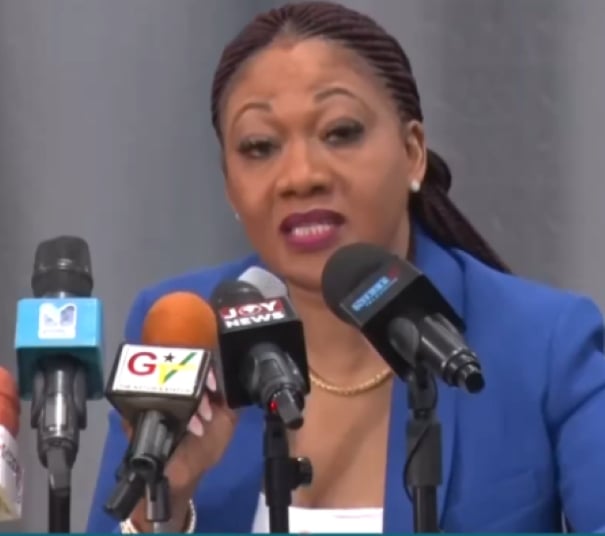The Electoral Commission (EC) of Ghana has recently come under scrutiny following its decision to disqualify eleven presidential candidates from participating in the upcoming elections scheduled for December 7, 2024. The commission has asserted its confidence in the integrity of the disqualification process and has expressed readiness to confront the legal challenges stemming from its decisions. Prominent figures among the disqualified candidates include Bernard Anbataayela Mornah, flagbearer of the People’s National Convention (PNC), and Kofi Siaw Asamoah from the Progressive People’s Party (PPP). Both candidates have initiated legal proceedings against the EC in a bid to overturn their disqualifications, amplifying the tension surrounding the electoral process in the country.
During a recent Inter-Party Advisory Committee (IPAC) meeting held at the Alisa Hotel in Accra, EC Chairperson Jean Mensa addressed concerns raised about the vetting of candidates. She emphasized the commission’s commitment to a transparent and equitable nomination process. According to Mrs. Mensa, the EC established several committees that reviewed candidates’ qualifications and produced reports that guided the disqualification decisions. The chairperson’s remarks aimed to reassure stakeholders that the selection process adhered to established protocols, countering criticisms suggesting bias or improper conduct by the EC.
In the midst of ongoing legal disputes initiated by some candidates, Mrs. Mensa asserted the commission’s determination to demonstrate the fairness of its actions. She conveyed a message of confidence, stating that the EC’s decisions are backed by thorough evaluations and are not arbitrary. The chairperson’s comments reflect a broader effort by the EC to quell public and political apprehension about the transparency of the electoral process amidst growing dissatisfaction among some political actors. By vowing to uphold the integrity of the electoral system, the EC is striving to maintain public trust in its operations.
The disqualification of candidates represents a significant aspect of the electoral process, as it can impact the political landscape and voter choice. The commission’s decisions have sparked debates across various political spheres, with opposition parties and civil society groups questioning the criteria and procedures employed in the vetting process. As the legal challenges unfold, the discussions surrounding electoral fairness and democracy in Ghana have intensified, highlighting the importance of transparent processes in gaining public confidence in electoral outcomes.
The complexity of events surrounding the disqualification and subsequent lawsuits illustrates the contentious nature of the electoral environment in Ghana. The ongoing litigation will likely draw significant public interest, as the outcomes may set precedents for future electoral practices and candidate eligibility criteria. The EC has a dual responsibility: to execute its mandate in overseeing elections impartially while ensuring that candidates and the electorate feel adequately represented and fairly treated. Balancing these dynamics will be crucial in shaping the future of electoral politics in Ghana.
As Ghana moves closer to the December elections, the situation remains fluid. The EC’s commitment to proving the validity and transparency of its processes through legal avenues will play a pivotal role in either reinforcing or undermining its credibility. The developments in this matter will not only influence the immediate political landscape but may also affect the long-term relationship between the electoral commission, political parties, and the electorate. It is essential for all stakeholders to engage constructively to uphold the principles of democracy and ensure a fair electoral process that reflects the will of the Ghanaian people.














